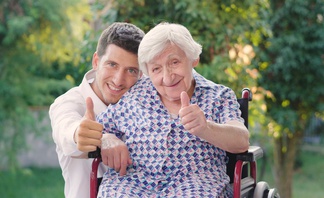Solving interesting tasks, such as working on a puzzle, is an enjoyable activity. Special Jigsaw puzzles created especially for older adults to have fun and some quality time with their family over pleasant task.
Why choosing puzzles:
-
Puzzles = feel productive
Working on puzzles help feel productive, relaxed and focused. Special puzzles for the elderly have great colorful pictures to bring additional joy for accomplishing tasks. Including puzzles as part of a daily routine for seniors has remarkable benefits for the mind and spirit and brings great memories from childhood.
-
Puzzles = improve mind
Puzzles help you focus, stay calm and concentrated. Even seniors who have declined cognitively can work on colorful pieces, just choose ones with lesser parts. Creating a nice picture from pieces keeps you actively busy along with exercising your fingers as well as your mind. In a review of several studies, researchers found that seniors with memory loss who worked on puzzles for 45 minutes two times a week had improved scores on memory tests.
-
Puzzles = suitable for everyone
Even if a senior has limited mobility, puzzles are still an accessible activity. Not to mention that working on them involves both sides of the brain, creating a stimulating workout. Puzzles solving benefit in many ways such as improved memory, inspiration, disposition, increasing creativity, and brain chemistry. For elderly who are struggling with memory loss, working on puzzles in a team environment can definitely help to improve their mental stamina. Also, that could revive social skills and helps feel socialized.
-
Puzzles = help with cognitive function
According to multiple studies, puzzles are great entertainment for people with dementia or Alzheimer’s disease. “Seniors living with Alzheimer’s need to participate in various activities that stimulate cognitive functioning. Puzzles not only get the brain working but allow for social opportunities between loved ones and caregivers and positive emotional connections,” says Rob Low, a specialist from a memory care community.
How to start:
-
Find puzzles that balance between challenging and impossible, avoid childish cartoon pictures
You can consider ordering puzzles with custom pictures like photographs
-
Consider that you need to establish a place for working on puzzles with a lot of light
-
Put a tablecloth over the table to add contrast
Recommend it to:
-
Bed-bound seniors
-
People who had incidences with memory loss
-
Those who want to have a fun and challenging activity to feel relaxed and productive





